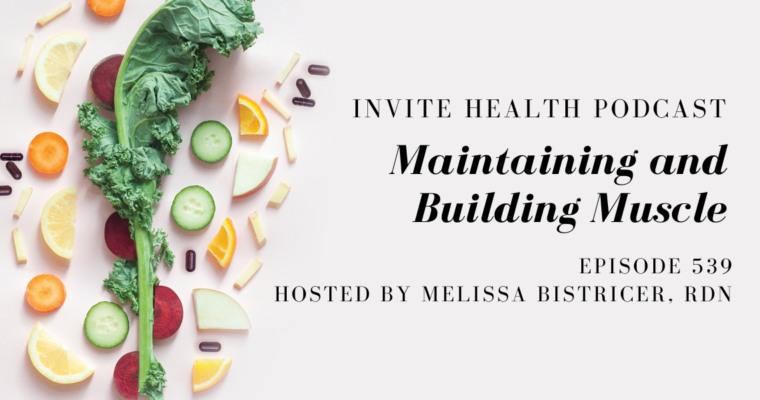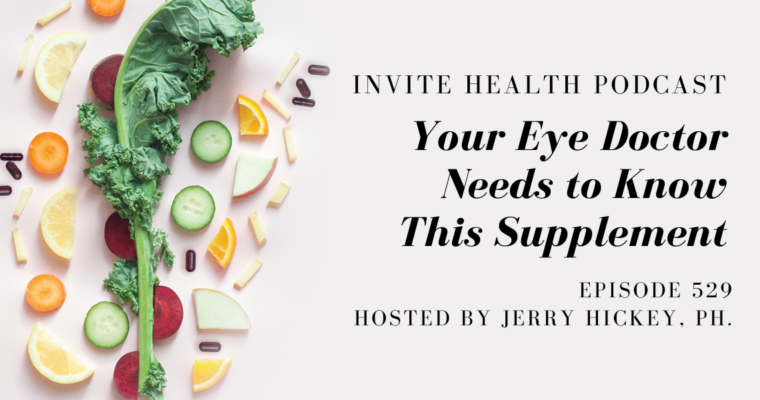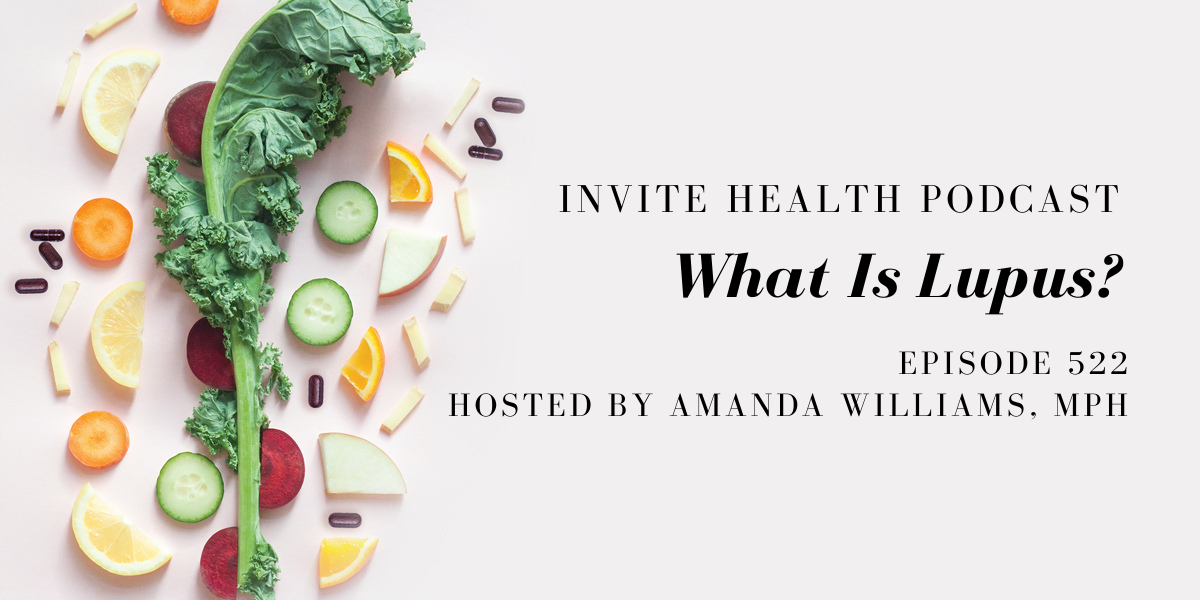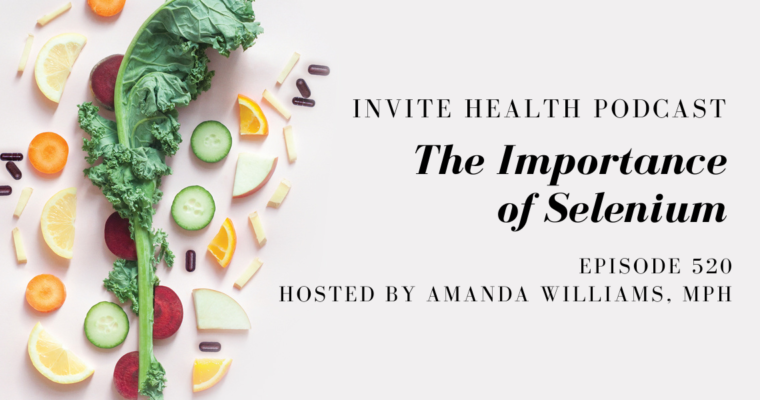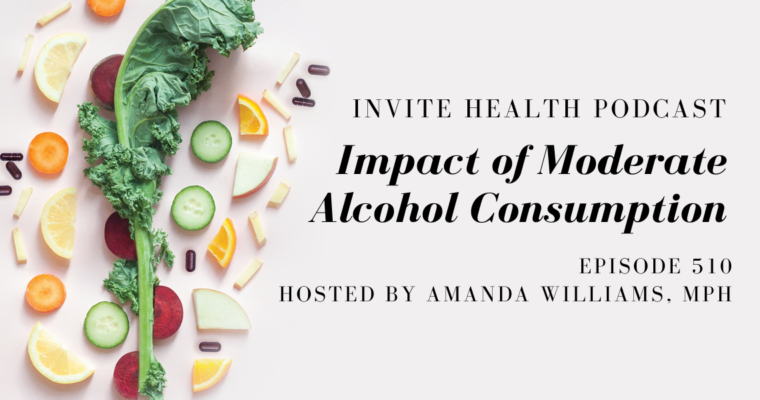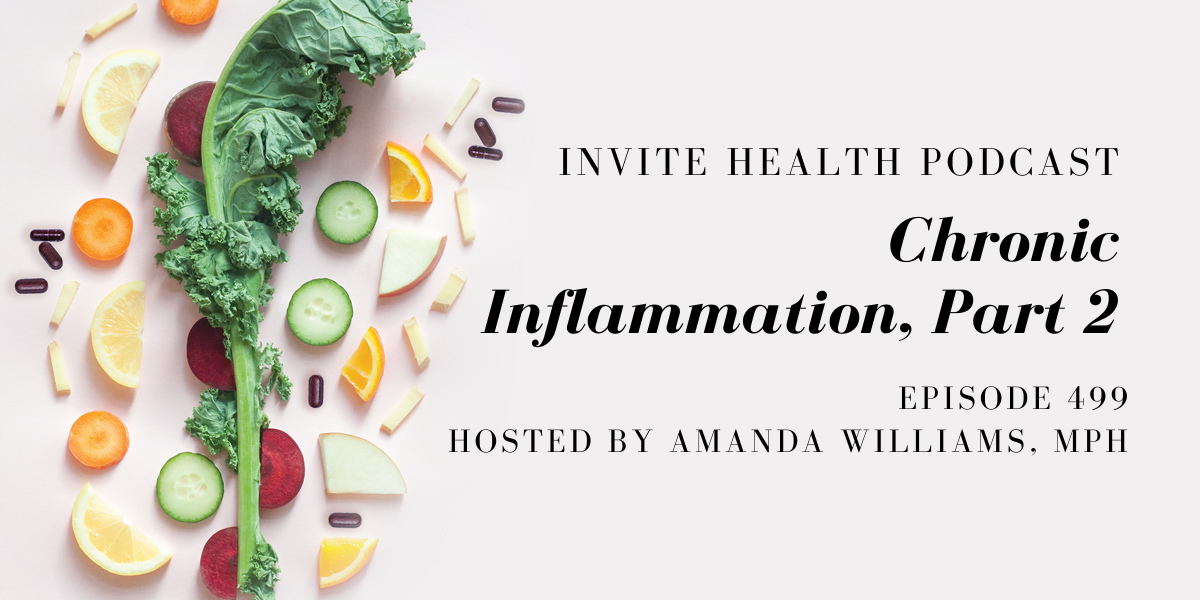lupus
Subscribe Today!
Please see below for a complete transcript of this episode.
What Is Lupus? – InViteⓇ Health Podcast, Episode 522
Hosted by Amanda Williams, MPH
*Intro music*
InViteⓇ Health Podcast Intro: Welcome to the InViteⓇ Health Podcast, where our degreed healthcare professionals are excited to offer you the most important health and wellness information you need to make informed choices about your health. You can learn more about the products discussed in each of these episodes and all that InViteⓇ Health has to offer at www.invitehealth.com/podcast. First time customers can use promo code PODCAST at checkout for an additional 15% off your first purchase. Let’s get started!
*Intro music*
Amanda Williams, MPH:
[00:00:40] When it comes to our immune system, sometimes things can go haywire, and today I want to talk about a autoimmune condition that commonly affects women. So 9 out of 10 people who are diagnosed with lupus are women, and we know that just according to statistics, we recognize that there’s roughly about one and a half million Americans who have a form of lupus. Certainly, men can be impacted by this. Children, teenagers. But for the most part, we find that a good 90% are going to be women. Between usually the ages of 20 and 40 is when the initial diagnosis occurs with lupus. So I want to talk a little bit about what exactly lupus is and what you can be doing if you yourself have been diagnosed with this, or if you happen to have a friend, a family member, a coworker who has been diagnosed with lupus.† [00:01:43]
[00:01:43] So I’m Amanda Williams, MD, MPH, Scientific Director here at InViteⓇ Health and lupus is a incredibly detrimental systemic disease. Whenever our immune system decides that it’s going to rear its ugly head and create havoc for us, that is a big problem. And there are so many different autoimmune conditions. You can look at things such as lupus, we can look at rheumatoid arthritis, we can look at diabetes. We know that there are many different ways to which our immune system can go from being a very protective thing in our, in our body to something that can be very destructive.† [00:02:30]
[00:02:31] Now we know that lupus has a common driving force, and that is inflammation. Now when you look at lupus, this is… We usually just shorten it to lupus, but we’re talking about systemic lupus erythematosus and SLE. Now we know that when it comes to SLE, hence just lupus, we’re dealing generally with multiple areas in the body. So the skin, kidneys, heart, the entire cardiovascular system, the nervous system, connective tissue, the skeletal muscular system, as well as other areas that can be impacted because of the significant inflammation that occurs. So when people have lupus, oftentimes the way that they present and many of the complications is that there are multiple organ systems that have been impacted by this. So this puts someone with lupus at a higher risk of having a heart attack, having diabetes, having chronic kidney disease, bone loss, osteoporosis, as well as different blood disorders.† [00:03:44]
PAINFUL KIDNEY STONES – INVITE HEALTH PODCAST, EPISODE 44. Listen Now>>
[00:03:46] We can see that there are certain areas in the country to which lupus diagnosis can be at a higher rate. So we know that there is a Vitamin D connection to lupus. So you’re going to see higher rates of lupus being diagnosed throughout the Midwest, as well as the Northeast than you do in other parts of the country, including the the west coast of the country, as well as the Southeast. So we know that Vitamin D, which remember, Vitamin D is critical to our immune system. We know that Vitamin D is definitely playing a significant role. We recognize that not only is it geographically driven, but it is also very much so race driven. And we are going to see higher rates of lupus in those who are African-American, Asian-American, Native American as well as Latina women. You see this in a much greater rate, the incidence in these women, much more than you do in Caucasians. This is an area where I think it’s commonly overlooked as a public health issue, and there are so many things that should be done and can be done to improve upon the health outcomes for anyone who is diagnosed with lupus and many of the signs and symptoms of lupus can vary from one person to the next.† [00:05:18]
[00:05:19] Now, the actual diagnosis is going to come down to serum blood levels of those autoantibodies. So looking at the antibodies in the blood. But we know that sometimes people or people present with just really extreme fatigue. They may have painful, swollen joints, muscle pain. Many times people know the famous butterfly rash, but it is a rash across the cheeks. Now, that doesn’t mean that every person who has lupus will develop that because there are different types of lupus and the different systems or organs to which lupus attacks can vary from one person to the next. For some people, they can experience it with pain in their chest when breathing. So there’s many different ways. Headaches is another one that sometimes people will present with, you know, swollen joints and headaches, and it’s like what is actually happening? And then they do the serum tests and then they can see, yes, indeed, this is a case of lupus.† [00:06:27]

[00:06:28] Now, conventional treatment for lupus is very… It can be very beneficial, but it can also come with a whole host of different side effects. So many of the anti-malarial drugs, which are antiparasitic drugs, are oftentimes prescribed to those who have lupus. Now, those come with a whole host of different side effects, including significant damage that can occur within the liver. We can definitely look at the overuse of anti-inflammatory drugs, the NSAIDs, so chronic use of NSAIDs in someone who has lupus can lead to damaging effects once again when it comes to the health of the kidneys, as well as the liver, just depending upon which NSAID someone is using.† [00:07:19]
[00:07:20] So what can be beneficial in terms of what someone with lupus can do? We know that looking at the diet, making sure that we’re not adding insult to injury by having a pro-inflammatory diet foods that are going to drive up even more inflammation, so you want to have an anti-inflammatory diet. Fruits and vegetables. High antioxidant foods. Healthy fats. Things that are going to help to lower your inflammatory burden. Understanding how much stress plays a role into this. Remember, stress will drive inflammation as well. So management of stress, whether this is, you know, finding ways to do meditation or yoga or exercise, all of these make a big difference.† [00:08:08]
[00:08:10] And then we have to look at different natural interventions. Knowing that Vitamin D is directly linked to this… If you look at people who have lupus and you test their serum Vitamin D levels, you are likely to find significant insufficiency and even deficient Vitamin D levels. But we can also look at how Vitamin E, you know, inadequate Vitamin E intake can be another driving factor for this inflammation that drives up in the system. We can look at how omega-3s, so by incorporating in fish oil or krill oil, how beneficial this can be for easing inflammation. Of course, we can look at hormonal pathways, and they’ve been able to show… There’s a very important adrenal hormone known as DHEA, and low levels of DHEA have been observed in patients who have lupus, as well as other inflammatory diseases. So oftentimes you will find doctors who will prescribe DHEA to help to improve upon the health of those who have these inflammatory autoimmune conditions.† [00:09:27]
LOW DHEA LEVELS MAY EXPLAIN CHRONIC INFLAMMATION – INVITE HEALTH PODCAST, EPISODE 229. Listen Now>>
[00:09:28] So lupus itself, we know it’s a systemic autoimmune disease driven by inflammation, so the immune system is attacking tissues in the body. We know that when it comes to which system is going to be affected most, this is going to vary from one person to the next. We know that there are different types of lupus. You have SLE, which is systemic lupus, meaning that this is affecting multiple systems in the body. You have discoid lupus. Now this is… Generally speaking, discoid lupus is only affecting the skin. Then you have drug-induced lupus. So this is when you were on a particular medication that then triggers an autoimmune response. There are different drugs that are frequently associated with creating this drug-induced lupus. So this can be many of the cardiovascular drugs antiarrhythmic drugs, hydralazine, which is a blood pressure lowering drug. So we can see how it is that lupus can present in different ways for different people.† [00:10:42]
[00:10:43] But at the end of the day, what we need to do is make sure that we are doing everything in our power to lower that inflammatory burden in the system. So we want to make sure that when it comes to the dietary intake that you are adhering to an anti-inflammatory diet so that Mediterranean diet really comes into play. We know that we don’t want to have to continuously turn to the anti-malarial drugs and the high dose NSAIDs in order to try to regulate this. So we want to try and help our immune system out ourselves by giving the immune system adequate nutrients, key vitamins and minerals. Those omega-3 fatty acids that we know are so key. So Vitamin D is going to be the number one thing that you look at. We know that when it comes to lupus, deficiency of Vitamin D is going to be incredibly high. And if someone with lupus doesn’t have Vitamin D deficiency, it’s pretty much guarantee that they will have insufficiency, meaning low levels, but not to the level of complete deficiency. So having your serum 25-hydroxyvitamin D level tested is incredibly important so that you’re supplementing with the right amount of Vitamin D every day to get you back into a healthy range to once again help to regulate the immune system response. Remember, when you’re taking Vitamin D, it’s always advantageous to take magnesium to help with that proper absorption. We want to incorporate in our fish oil or krill oil, or if you want to use the vegetarian option, using flaxseed. I always encourage anyone who has been diagnosed with lupus to incorporate Vitamin E. We know that Vitamin E certainly plays a essential role in terms of stabilizing cellular membranes. So we want to make sure that those immune cells have that support, and we know that Vitamin E certainly can block that autoimmune attack just through that action of stabilizing the cell membrane. They’ve done studies where they’ve shown how Vitamin D supplementation can actually reduce the level of autoantibodies in lupus patients.† [00:13:22]
[00:13:23] We have to look at other herbal extracts. There have been many studies done with curcumin and understanding that the bioactive components those curcuminoids can do a wonderful job in terms of easing that inflammation through targeting and suppressing or lowering different cytokines that are directly linked with lupus. So looking at things like different interleukins and tumor necrosis factor alpha. We can look at the clinical trials where they’ve given curcumin extract to patients with lupus, and they can start to see an improvement across all different markers, including those who have significant impact to their kidneys. Remember, lupus is going to attack multiple organ systems. When it attacks the kidneys and creates kidney disease because of lupus, so you get nephritis, so inflammation within the kidney, they can see how it is that that curcumin can help to stabilize that kidney function. So a lot of different things that we can be looking at. We can look at that hormonal component. And if your DHEA levels are low, then looking at supplementation with DHEA can help to create that balance once again within that adrenal stress response, but at the same time helping to heighten the body’s immune system, so it’s not going into this self-destructive mode. So lupus is something that you definitely want to make sure that if you know someone, if you, you yourself have lupus, that you take action in terms of diet, exercise and proper supplementation to have a better management of this autoimmune condition.† [00:15:21]
[00:15:22] So that’s all that I have for you for today. I want to thank you so much for tuning in to the InViteⓇ Health Podcast. Remember, you can find all of our episodes for free wherever you listen to podcasts or by visiting invitehealth.com/podcast. Now do make sure that you subscribe and you leave us a review. You can follow us on Facebook, Twitter and Instagram @invitehealth and we will see you next time for another episode of the InViteⓇ Health Podcast.† [00:15:22]
*Exit music*


